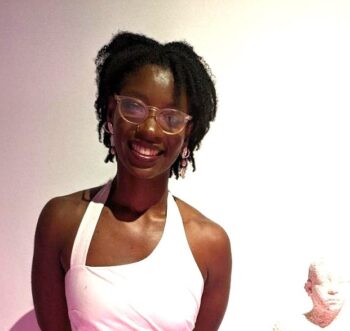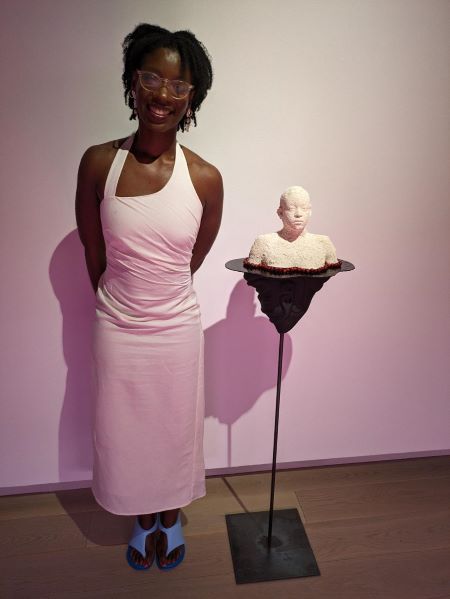
“The Seeds We Carry” art exhibition by Kosisochukwu Nnebe, opens at the Saw Gallery
Saturday 8 June 2024
The Seeds We Carry is a new solo exhibition consisting of new and existing works by Nigerian-born, Montreal-based conceptual artist Kosisochukwu Nnebe. The exhibition opened at the SAW Centre in Ottawa – the region’s largest artist-run centre – on 8 June and will run until mid-August 2024.
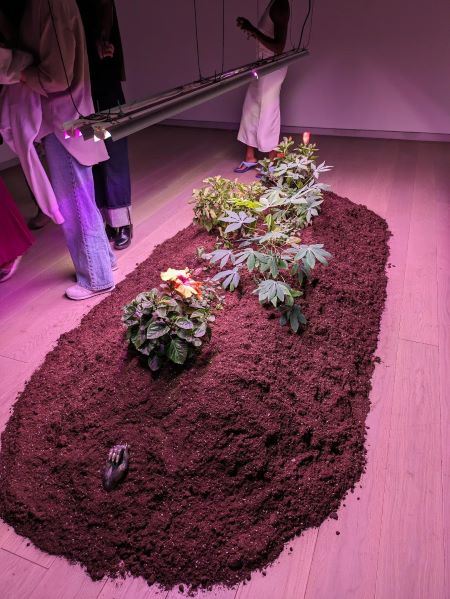
The exhibition explores how enslaved women in the Caribbean used food and various plant medicines to navigate the realities of life under slavery, from using cassava to poison slave masters to making a paste of sugar apple seeds to terminate pregnancies. Drawing connections between plant knowledge and spirituality, and between the Caribbean and West Africa, the exhibition centres Black women and the cover methods of resistance they made use of. At its core, the exhibition teaches survival against all odds, through collaboration with the natural world and the use of so-called “women’s weapons” or “weapons of the weak”, such as poison.
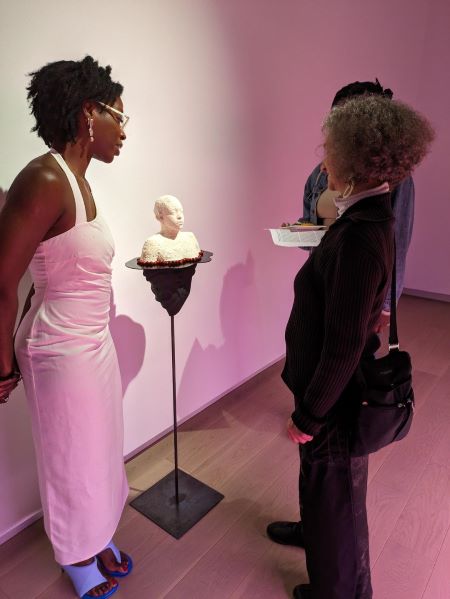
The exhibition employs Nnebe’s long-standing methodology of using food as counter-archives of colonial histories, which stems from her past work in public policy in the areas food security and food sovereignty. Where official archives inherently bring about issues of accessibility, control, and power, Nnebe turns to common foodstuffs as counter-archives to open up subaltern perspectives and approaches to memory-making with which to re-write history, bridging the gap between disparate regions, peoples and timelines.
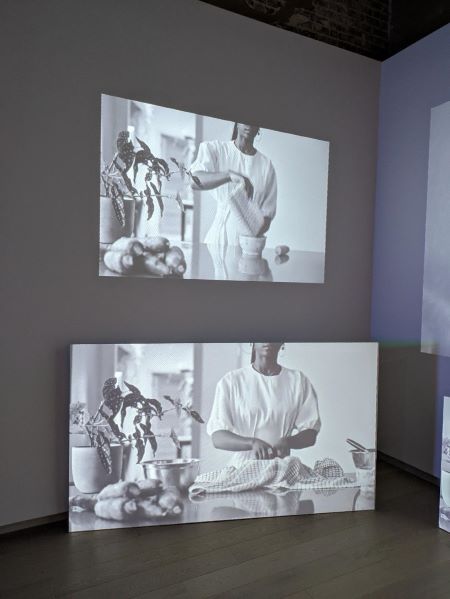
The exhibition is multi- and cross-disciplinary. In the gallery, artworks range from large-scale immersive video installations to the creation of an in-situ nail salon that plays on the historic concealment of poison under the grown-out thumbnails of enslaved peoples (“the thumbnail method” as British slave-owners called it). Organic matters abound, including a mound of soil in which Nnebe grows crops under artificial grow-lights – a reference to the plots of land enslaved people were given to grow food, which became unruly spaces of potential liberation that provided food, healing remedies and weapons, such as cassava.
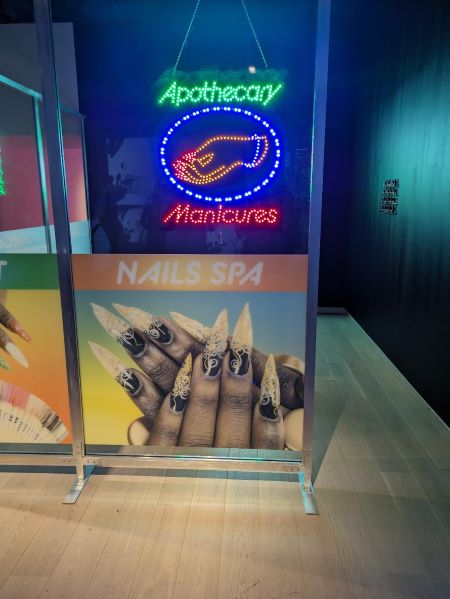
Beyond the gallery walls, this first iteration of the exhibition involves a collaboration with Professor Menna Agha from the Azrieli School of Architecture at Carleton University in Ottawa to build a community pantry (based on her Public Foods pantry from 2022) meant to address food insecurity in downtown Ottawa, where the exhibition will be held. At the end of the exhibition, the pantry will be permanently relocated to a predominantly Black neighborhood in the city, continuing its mission of improving Black food security. The opening night of the exhibition will also be a collaboration with Pique, a local music festival in Ottawa put on by Debassr, Nnebe has hired a musical curator to enlist Black musical acts that celebrate the key themes of the exhibition: Black survival and aliveness.
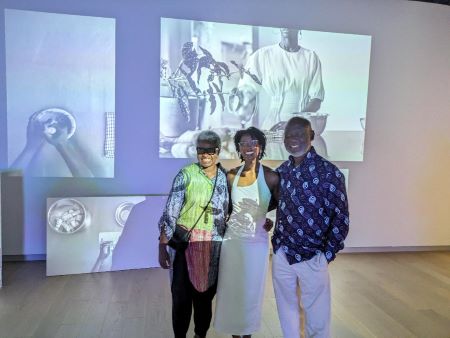
Following its opening at the SAW Centre this summer, the exhibition will tour various venues both in Canada and internationally.
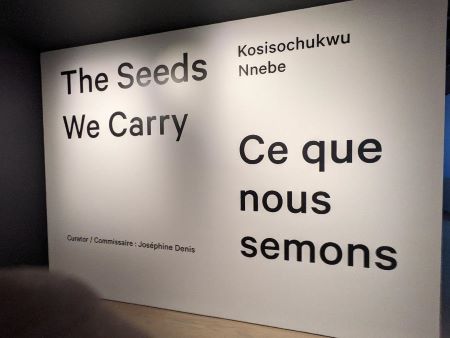
Kosisochukwu Nnebe is a Nigerian-Canadian conceptual artist, curator and writer whose practice draws inspiration from postcolonial and Black feminist thinkers such as Frantz Fanon, Edouard Glissant, bell hooks, and Sylvia Wynter. Working across installation, lens-based media and sculpture, Nnebe engages with topics that range from the politics of Black visibility, embodiment and spatiality to the use of foodways and language as counter-archives of colonial histories. At its core, Nnebe’s practice is interested in anti-colonial and -imperial world-building through acts of solidarity (human and otherwise), the troubling of colonial logics, and speculative (re)imaginings of otherwise pasts, presents and futures. A self-taught artist, Nnebe’s educational background in economics and sociology from McGill University and the London School of Economics, as well as professional background in social policy through her work with the Canadian federal government both inform her approach to her art practice, which is research-based and geared toward social change. Her curatorial practice focuses on anti-colonial solidarities and alternative readings of colonial histories through the lens of racial capitalism and ecology.
Nnebe’s work has been shown in exhibitions across Canada, including the Montreal Museum of Fine Arts, Plug In ICA (Winnipeg), the Agnes Etherington Arts Centre (Kingston), Optica Gallery (Montreal), and ArtSpeak (Vancouver), as well as the Hausen Gallery in New York City, the Mohr Gallery in Mountain View, California, and Tolhuistuin Cultural Centre in Amsterdam. She has forthcoming exhibitions at the Art Museum of Toronto, SAW Centre in Ottawa, Fonderie Darling in Montreal, the Bowling Green State University Gallery in Ohio and Green Space in Miami, Florida, among other. She recently participated in a residency with Women Photographers International Archive (WOPHA) at El Espacio 23, a contemporary art space founded by Jorge M. Perez in Miami; is the recipient of the 2023 G.A.S. Fellowship started by Yinka Shonibare in Lagos, Nigeria; and was one of two inaugural artists for NLS Kingston’s Sustainable Sculpture Residency in Maroon Town, Jamaica. In 2025, Nnebe will be among a small cohort of artists, designers, researchers, architects and curators participating in a year-long residency at the Jan van Eyck Academie in the Netherlands. Nnebe has been commmissioned for public art by Plug In ICA; digital art by the Mozilla Foundation, and writing by the Department of Love, the National Gallery of Canada, Disembodied Territories (UK) and Artexte (Montreal), with her writing appearing in two forthcoming book publications. Her work is held in private and public collections, including the Canada Council for the Arts, Ottawa Art Gallery, Agnes Etherington Art Centre and the Montreal Roundtable for Black History Month. In 2021, Nnebe designed and delivered a course on Art and Criticism from a critical and decolonial perspective for the Ottawa School of Art’s Fine Arts Diploma Program.

